Author: Icon8888 | Publish date: Thu, 18 Feb 2016, 12:19 PM
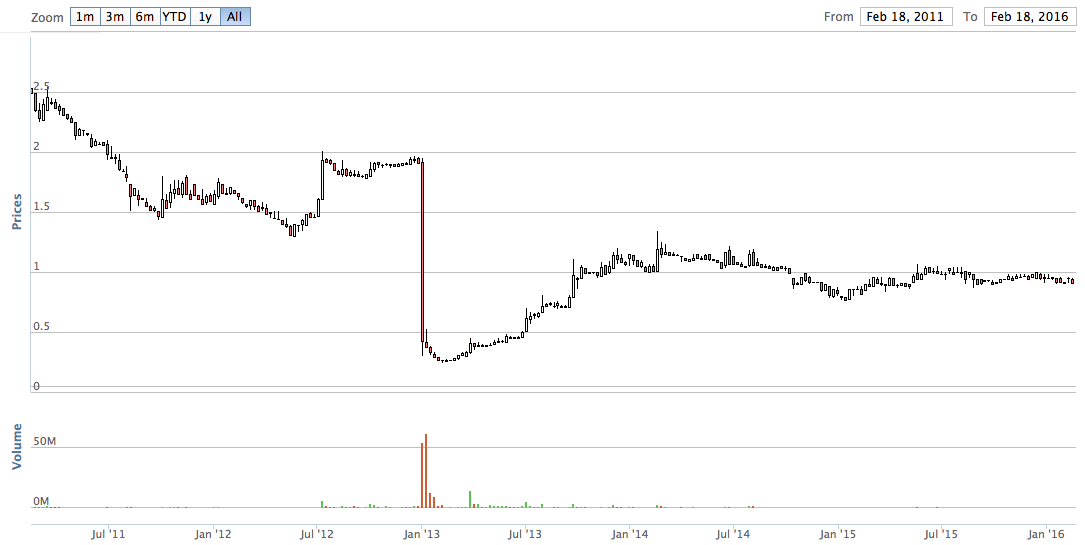
1. Background Information
Several years ago, Adventa sold off its glove business and distributed the bulk of the cash proceeds back to shareholders. It subsequently ventured into healthcare business comprises the following :-
(a) Hospital Supplies Distribution Undertaken by subsidiary Sun Healthcare Sdn Bhd.
(b) Contract Sterilization Undertaken by subsidiary Electron Beam Sdn Bhd ("EBSB"). EBSB's facilities and warehouse are located in Westport, Klang. It uses electron / ion beam irridiation to sterilize disposable medical devices.
(c) Home Dialysis Undertaken by subsidiary Luxencia (M) Sdn Bhd ("Luxencia"). Over the past few years, the group has been busy setting up operation for this division. Luxencia finally launched its service in January 2016. If successful, this division has the potential to become major earning contributor to the group.
Based on 151 mil shares and RM0.95, the company's market cap is RM143 mil. The group has net assets of RM80 mil, cash of RM22 mil and loans of RM39 mil. Net gearing is 0.21 times.
The group reported net profit of RM3.1 mil in FY2015. As such, historical PER is 46 times.
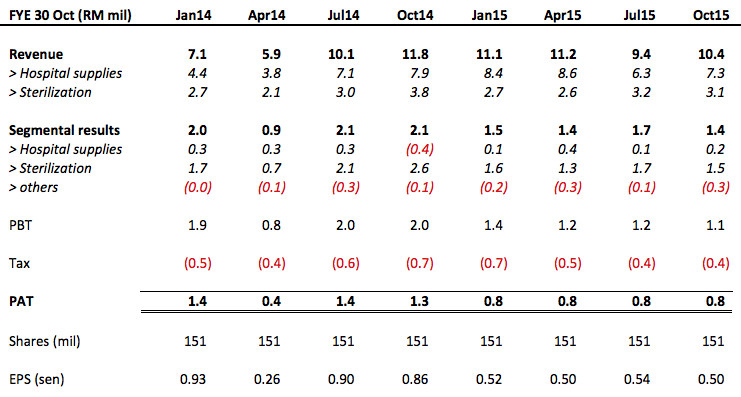
2. Peritoneal Dialysis
Normal hemodialysis makes use of a machine to cleanse the blood of the patients. Tubes are inserted into the blood vessels in patient's hand. Blood is drawn from the patient and pumped through a filter in the machine. The clean blood then flows back to the patient's body via the tubes.
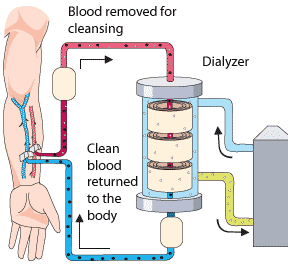
(Hemodialysis)
Peritoneal dialysis is different. Instead of using a machine, it uses the patient's abdomen to remove wastes.
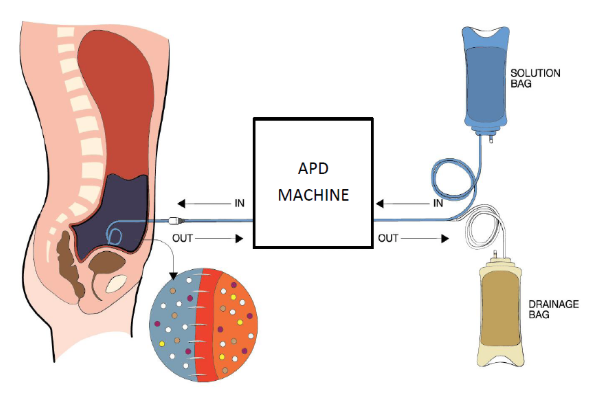
(Peritoneal dialysis)
To undertake Peritoneal dialysis, a tube called Cathether must first be surgically inserted into the abdomen. It will stay there permanently. The surgery will only take about one hour to complete.
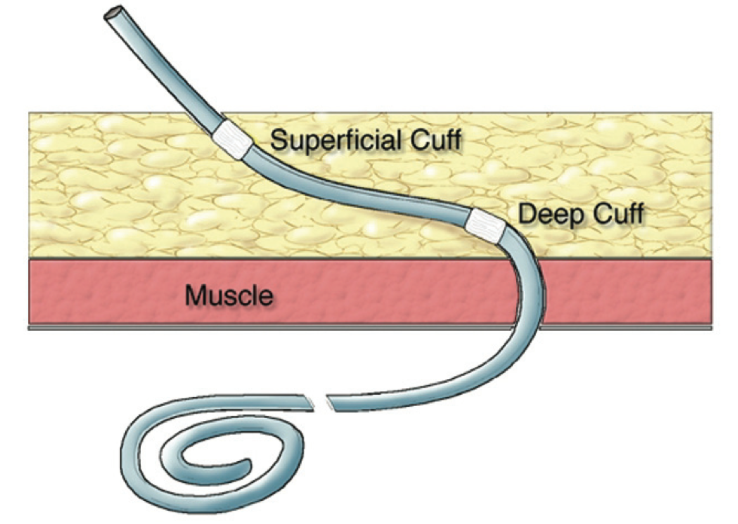
(The "Cuffs" anchored the Cathether in fixed position)
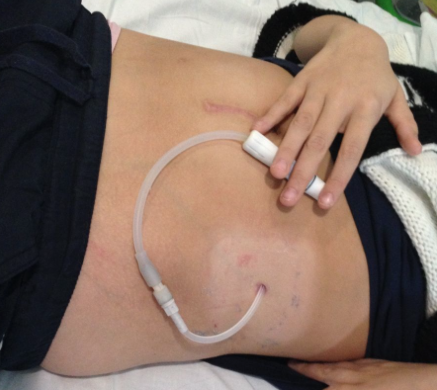
(Cathether is inserted into the abodomen of the patient and stays there permanently)
The abdomen is surrounded by a layer of membrane covered with blood vessels. This layer of membrane can be used as a filter. During dialysis, medical fluid is injected into the abdomen through the Cathether. Through osmosis process, waste will gradually diffuse from blood vessels in the membrane into the fluid. After several hours, the fluid will be removed from the abdomen together wih the wastes.
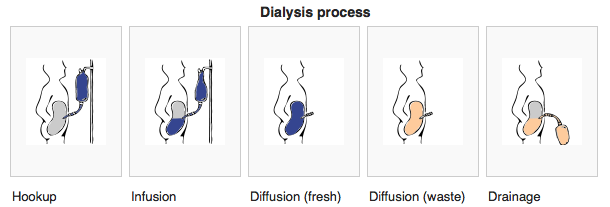
Adventa's dialysis treatment is called Automated Peritoneal Dialysis. It is undertaken while the patients are sleeping at night. The system injects and drains out the fluid on its own.
The service provider will first pay a visit to the patient's home to ensure that it is suitable for the dialysis activities. Nurses will subsequently coach the patient on how to use the equipment.
The dialysis equipment will capture and transmit the patients' data regularly to the healthcare provider, which will step in to provide guidance and advice when necessary (Telemedicine).
3. Acceptance By Patients
In my opinion, the following factors will influence a patient's decision whether to undertake Hemo or Peritoneal dialysis :-
(a) Cost Peritoneal dialysis doesn't need to make use of a machine. As such, it is cheaper than Hemodialysis.
(b) Convenience Peritoneal dialysis can be undertaken at home. If you have been an outpatient before, you will agree with me that the mostly lovely place in the world is your own home.
It is also portable. This allows patients to travel if they want.

(Source : Adventa promotional video)
(c) Better Quality of Life Since Automated Peritoneal Dialysis is undertaken at night, patients can wake up in the morning to live a normal life during day time (without being attached to the equipment).
(d) Effectiveness I don't possess sufficient knowledge to detemine the superiority of one method over another. But Peritoneal dialysis is not a new method. It has been in existence for a long time. I believe both methods have their pros and cons.
(e) Cathether I believe one of the biggest issues people will have with Peritoneal dialysis is that there is a permanent opening to the abdomen. If not managed properly, it might lead to infection. However, according to articles I read, this risk can be mitigated by sticking strictly to procedures and medication.
Appendix - Sin Chew Article
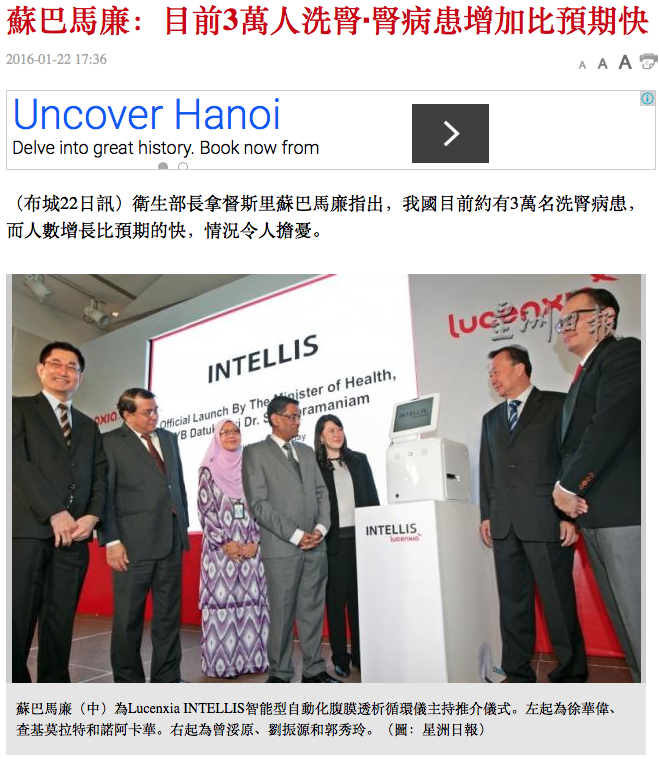
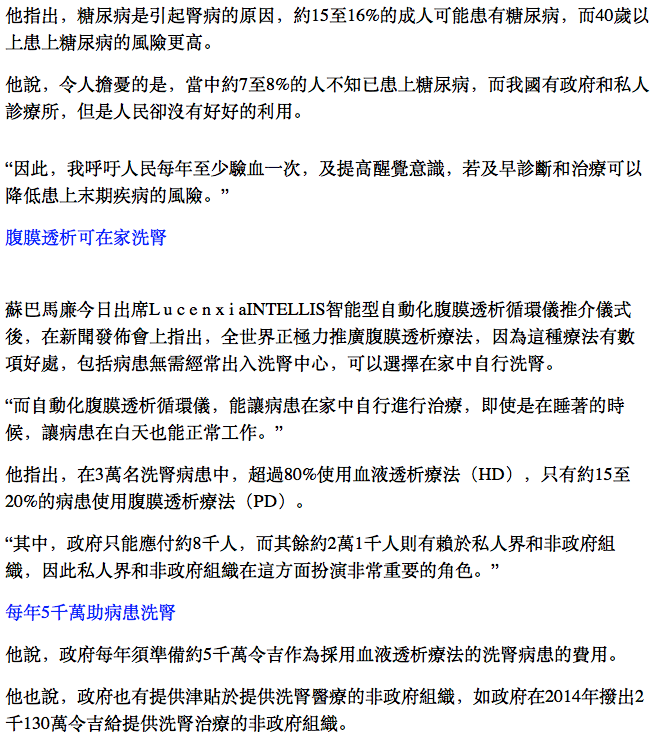
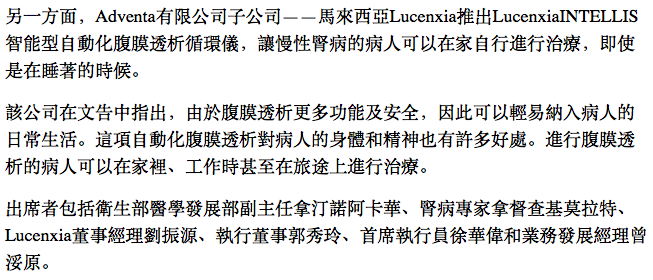
Icon, you also holding this stock?
ReplyDelete